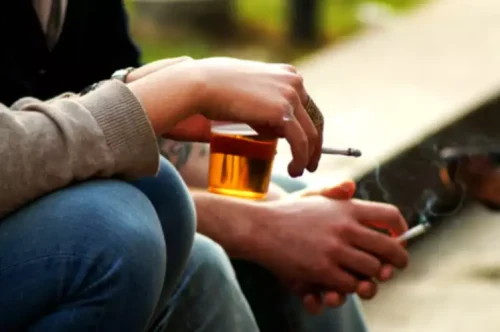
In some cases, professional guidance is essential for recovery from peer pressure. For example, individuals recovering from heroin addiction often find it immensely helpful to enroll in a structured heroin treatment program. These programs offer a safe environment where you can learn to resist external pressures and develop valuable life skills. Older teens and young adults may be peer pressured to engage in harmful activities like drinking alcohol, smoking, or reckless driving. At this age, peer pressure has the potential to affect a child’s long-term health and well-being and put them into dangerous situations. Parents should encourage their teens to reflect on family values, understanding the importance of these values when faced with peer pressure.
My Best Friend Gave Me My First Drink at Age 13
The previously mentioned study about substance abuse highlights that just as peers can encourage harmful behaviours, they can also play a role in helping others adopt healthier lifestyles. Peer pressure extends into the realm of financial and consumer decisions as well, affecting how adults approach spending, lifestyle choices, and even career paths. Whether it’s making an excuse to leave, calling a trusted friend for support, or simply walking away, having an exit strategy can help you navigate such negative external pressure more effectively. This occurs when your friends or peers encourage you to make healthy choices or pursue constructive activities.
Recovery and Spending Time in Nature

Be assertive, be mindful, and surround yourself with positive, uplifting people who appreciate you, your idea, your lifestyle, and your choices. While peer pressure is often viewed negatively, it can also have beneficial effects. In workplaces, this might include pressures to participate in after-hours events or team-building exercises where the expectation to “fit in” is strong. Answer these questions to see how peer pressure might be affecting your choices. You can plan to deal Drug rehabilitation with such a situation and respond to it practically without breaking your relationship with the people. So be ready with your exit strategy because you never know when you need it.
How to Maintain Personal Integrity in Recovery
Many people think peer pressure is something we left behind in our grade school days. But it is just as present in adulthood as in childhood; it’s just harder to spot sometimes. Still, it moves from friendly indirect peer pressure ribbing into dangerous territory when it fuels an addiction, jeopardizes someone’s recovery, or threatens to damage someone’s physical or mental wellbeing. Positive peer pressure occurs when individuals within a social circle encourage each other to make constructive choices that promote well-being, growth, and development.
The Importance of Self-Care in Addiction Recovery
In settings where peers have high “social capital” or influence, individuals are more likely to conform to group expectations to avoid social risks or feelings of exclusion. This influence can be particularly strong in work environments or long-term social networks where maintaining relationships is key to social acceptance. By integrating these tools and strategies, parents can effectively support their teens in navigating the complex realm of peer pressure.

Strategies for Managing Peer Pressure

This war of thoughts creates confusion in your mind about whether to follow your true self (stick to values) or do things your peers want you to do. This is the type of pressure that you put on yourself based on your perceptions of what your peers expect from you. You might feel compelled to maintain a certain image or achieve certain goals because you believe that’s what your friends or peers want to see from you. This is the type of pressure that leads you down a path that’s detrimental to your well-being. It can involve anything from engaging in risky behaviors like reckless driving to adopting unhealthy habits like smoking, and excessive drinking just to fit in with a particular group.
The Connection Between Recovery and Motherhood
Being pressured by peers can be a stressful experience, whether it happens in person or online. It may shake your sense of identity and self-confidence and may contribute to excessive worry. In addition, prolonged exposure to this type of stress and tension may be a factor in mental health concerns such as anxiety and depression. Teaching assertiveness skills through role-play scenarios can prepare them for real-life peer pressure situations. Building self-awareness through mindfulness practices can help teens recognize their moods and reactions, allowing them to respond to peer pressure more thoughtfully.

Peer Pressure at Any Age – Understanding the Impact of Peer Pressure on Adult Life
- Learning how to navigate these situations is crucial for maintaining sobriety and personal growth.
- ” Are you using the excuse that you do not want to be rude, cause trouble, or be different?
- Research such as this one published in BMC Medical Health, also in 2020, underscores how both overt and subtle pressures are experienced by adults.
- As parents and guardians, equipping teens with the proper tools not only helps them resist negative influences but also empowers them to harness peer relationships for positive development.
- Peer pressure to use substances like alcohol and cannabis can unfold into problems with substance abuse.
Assertive teenagers can express their feelings, opinions, and desires confidently without being aggressive. This self-confidence helps them communicate their boundaries effectively, allowing them to navigate social situations with ease. To cultivate this skill, role-playing scenarios can be particularly beneficial.
- Positive peer influence strengthens resilience and offers teens a solid support network, empowering them to make informed choices amidst societal pressures.
- Surround yourself with individuals who understand and respect your commitment to sobriety.
- When you ask for an alternative that shows you are still interested in spending time with them but on terms that feel right for you.
Furthermore, developing connections with other trusted adults, such as coaches or mentors, can broaden a teen’s support network. These relationships can provide additional perspectives and reinforce the idea that they are not alone in their struggles with peer pressure. Open dialogues about peer dynamics and encouraging self-affirmation from adults can empower teens to make choices that align with their values. Firm body language, direct eye contact, and a strong tone of voice can reinforce a refusal, making it harder for peers to counter the decision. Encouraging teens to articulate their values helps them understand why saying ‘no’ is not only acceptable but necessary in many circumstances.
